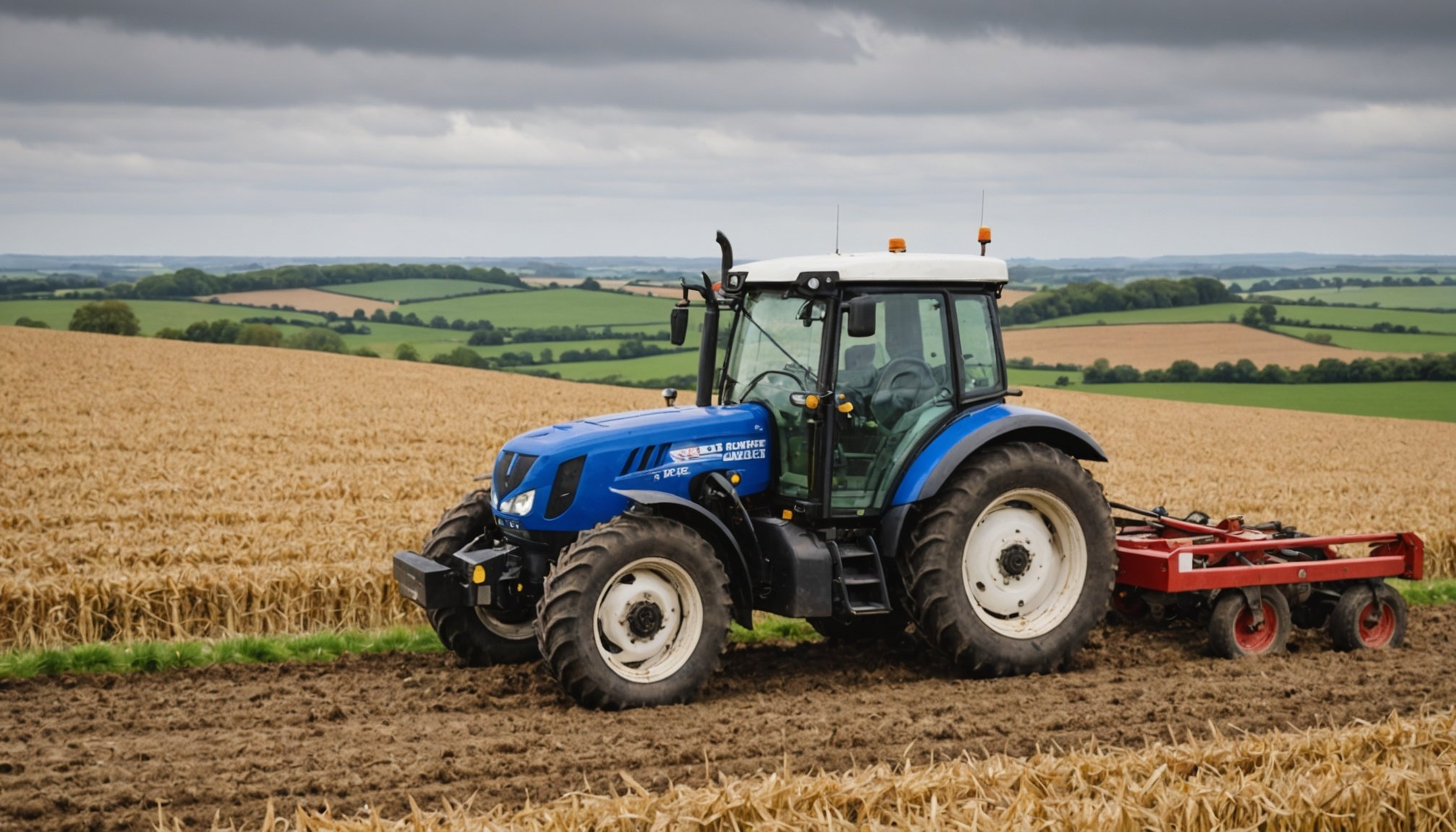Overview of Brexit’s Impact on UK Agriculture
Brexit has introduced a myriad of challenges and changes for UK agriculture, significantly reshaping the landscape. Prior to Brexit, UK’s agricultural sector enjoyed frictionless trade with the EU, which constituted a significant portion of its market. The Brexit timeline involved key milestones like the 2016 referendum and the subsequent December 2020 transition period end, marking notable shifts affecting agriculture.
These changes stem from the reformation of trade relationships, which now include complexities such as trade barriers and tariffs. Negotiations around Brexit have led to a plethora of implications for the agricultural sector, including market access uncertainties and regulatory adjustments.
Have you seen this : Embrace tomorrow: explore cutting-edge innovations in home renewable energy solutions
Before Brexit, UK farmers benefitted from substantial EU subsidies and a seamless supply chain of imports and exports. Now, they face new agriculture challenges, as they must adapt to altered market dynamics and funding configurations.
Across the timeline of Brexit, ongoing discussions on trade agreements have spotlighted the agricultural sector. These agreements aim at redefining the UK’s trading capacities while ensuring strategic alignment with new adaptation needs, crucial for maintaining the sector’s viability and tackling emerging challenges head-on. By addressing these, UK agriculture strives to achieve long-term stability and growth amidst the Brexit context.
Also to see : Unlocking success for uk independent musicians: a comprehensive guide to enhancing online visibility
Challenges Faced by UK Farmers Post-Brexit
The implementation of Brexit effects has led UK farmers to confront significant agricultural challenges. One primary issue is the emergence of new trade barriers and tariffs impacting exports. Market access to the EU, once straightforward, now requires navigating complex export regulations and potential tariffs, complicating the trading process.
A further agriculture challenge is the prevalence of labor shortages within the sector. The reduction of EU migrant workers, historically a substantial part of the agricultural workforce, has pressured farming operations. This shortage has affected productivity and, subsequently, the ability of some farms to maintain previous levels of output.
Changes to subsidy schemes are another concern, as UK farmers previously relied heavily on EU subsidies. The transition to new national funding schemes necessitates adaptation and a reevaluation of financial strategies to ensure resilience in the face of evolving economic landscapes.
For farmers, these multifaceted agricultural adaptation requirements present opportunities for innovation and the potential to enhance operational efficiencies. Adopting new technologies and practices will be crucial as they seek to transform these challenges into a pathway for sustainable growth. By strategizing effectively, the sector can aim for a robust future amidst the post-Brexit economic conditions.
Market Access and Trade Dynamics
Navigating market access post-Brexit presents distinct challenges for UK farmers. New trade dynamics have introduced complex export requirements, critically altering how UK agricultural products are traded with the EU. These changes demand detailed documentation and compliance with stringent regulations, affecting efficiency and cost.
Changes in Export Requirements
The shift in trade dynamics post-Brexit has led to stringent export requirements. UK farmers face increased paperwork, compliance checks, and possible tariffs when trading with EU nations. This can significantly impact profitability and logistical efficiency.
Implications of New Trade Agreements
Trade agreements with non-EU countries serve as potential opportunities. These agreements can provide UK farmers with alternative markets. The benefits include reduced tariffs and new trading partnerships, which may offset some losses faced due to reduced EU access.
Shift in Import/Export Balances
A notable shift in import/export balances has occurred since Brexit. While some markets have shrunk, others have grown, requiring farmers to pivot quickly to seize new opportunities. A careful analysis of these market shifts is essential to ensure sustainable growth and to navigate the evolving trade landscape efficiently.
With these new dynamics, strategic planning in trade relationships is essential to maintain competitiveness.
Economic Implications for the Agricultural Sector
The economic repercussions of Brexit for the UK agricultural sector are profound. Economic analysis reveals shifts in agricultural income and output, as the industry adapts to new conditions. Currency fluctuations have had a notable impact on imports and exports. When the pound weakens, export opportunities can potentially expand due to more competitive pricing. However, this simultaneously increases the cost of imports, affecting the price of essential farming inputs like machinery and fertilisers.
In understanding agricultural economics, one must consider these dynamic factors working together. Farmers face the challenge of maintaining financial resilience amidst these changes. Several case studies highlight how some farming operations have achieved economic resilience by diversifying their activities. For instance, successful adaptation has been seen where farmers have expanded into agritourism or niche markets.
There are also reports of collaborative efforts among farmers to reduce costs and increase bargaining power. Such initiatives demonstrate resourcefulness in addressing evolving economic landscapes. Strengthening financial resilience involves not just more effective resource management; it also involves strategic marketing and leveraging technology to boost productivity. Ultimately, these efforts can support the sector in weathering economic uncertainties post-Brexit.
Opportunities Emerging from Brexit
While Brexit posed several initial challenges to UK agriculture, it also opens new doors for agricultural opportunities. One crucial avenue is the identification of new markets for UK produce beyond the European Union. Expanding into markets like the Asia-Pacific and North America brings potential for substantial growth. These regions may demand products in which the UK excels, such as premium-quality meats and dairy, which may face fewer trade barriers in these new markets.
Innovation in farming is another significant opportunity. Post-Brexit, UK farmers are pressed to enhance productivity and efficiency through technology adoption. Tools like precision agriculture, drones, and AI-driven data analytics can transform traditional practices, increasing yields and reducing costs. The government has shown support by introducing initiatives to assist farmer adaptation, such as grants for adopting new technologies and entering emerging markets.
Moreover, the government is implementing policies to encourage innovation. Programs aiming to upgrade farming infrastructure and invest in research on sustainable practices are designed to bolster agricultural adaptation. These developments offer a silver lining amidst Brexit’s disruptions, presenting an opportunity for the sector to reimagine and modernise, ultimately striving for a sustainable and resilient future.
Future Outlook for UK Agriculture
Navigating the future of UK agriculture requires a focus on long-term strategies and sector sustainability. Predictions suggest that the agricultural sector will undergo significant transformations in the next 5-10 years, driven by evolving economic, environmental, and technological pressures.
Embracing Sustainable Practices
Sustainability will be at the forefront of future agricultural trends. Farmers are increasingly adopting sustainable practices such as crop rotation, reduced chemical usage, and water management systems. These methods aim to preserve natural ecosystems, ensure resource efficiency, and enhance resilience against climate change impacts.
Technological Innovations
Advancements in technology stand to revolutionise farming. Precision agriculture technologies, including GPS mapping, soil sensors, and automation, are expected to become central to farming operations. This tech-driven approach enhances productivity and resource management, helping the sector navigate changing environmental conditions and market demands.
Shifts in Consumer Preferences
Consumer demand is shifting towards organic and environmentally-friendly products. The future of agriculture includes aligning production with these preferences by increasing organic farming and adopting certifiable eco-friendly practices that satisfy consumer expectations for sustainability and quality.
In conclusion, by implementing strategic shifts, embracing innovative solutions, and adhering to sustainable practices, UK agriculture is well-positioned to navigate future challenges and establish a robust, resilient industry.











